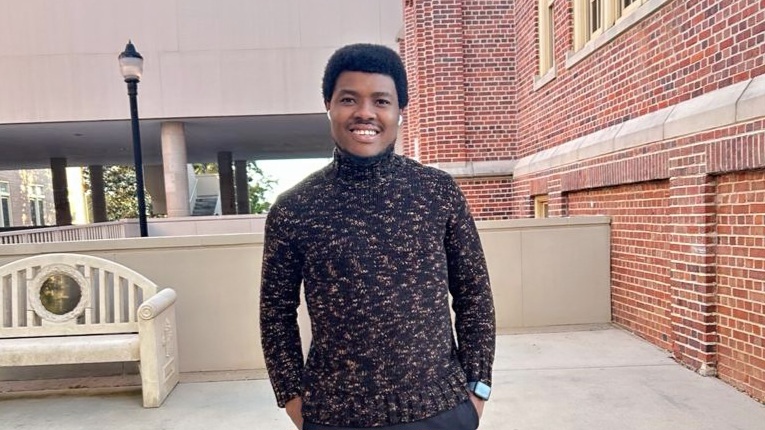 In an era when America needs new voices to help it understand its own complexities, Gabriel Ayomide Festus emerges as a poet who transforms personal loss into powerful social commentary. A fully funded MFA candidate at Florida State University, Festus has already begun reshaping how poetry addresses displacement and memory in contemporary America.
In an era when America needs new voices to help it understand its own complexities, Gabriel Ayomide Festus emerges as a poet who transforms personal loss into powerful social commentary. A fully funded MFA candidate at Florida State University, Festus has already begun reshaping how poetry addresses displacement and memory in contemporary America.
His work goes beyond traditional poetic boundaries. At Florida State University, where he serves as a Poetry Instructor, Festus has pioneered innovative workshops that integrate African oral traditions with contemporary poetics. His teaching spans traditional forms like sonnets and ghazals while embracing experimental techniques, offering American students new ways to understand their own stories of migration and belonging.
Published in respected journals like Tupelo Quarterly with his poem “Genesis” and IceFloe Press featuring “My Mother Washes Her Grief Ashore,” Festus crafts verses that transform everyday American spaces into testimonies of presence and absence. His work, honored by the FSU Black Alumni Fellowship in Maxwell Courtney’s name, demonstrates how personal narratives can illuminate larger patterns of displacement in American society.
As the Editor-in-Chief of Ibadan Magazine and a co-curator of Poetry Sango Ota, Festus brings a unique perspective to American poetry. His experience in both Nigerian and American literary scenes enable him to bridge cultural gaps that often limit understanding between communities. This cross-cultural expertise, combined with his background in Philosophy from Obafemi Awolowo University, gives his work a depth that resonates with diverse American audiences.
The next decade will see Festus’s influence grow through his project “Bloodline and Borderlands,” which investigates how empire and colonialism shape language and memory. In his poetry workshops, he guides students through the complexities of both traditional forms and contemporary experimental techniques, fostering a new generation of writers who understand poetry’s power to address urgent social questions.
Drawing from his rich background – fluent in both Yoruba and English, versed in both praise poetry and modern African verse – Festus creates poetry that speaks to America’s multilayered
identity. His time at the Watermill Residency in New York has further shaped his understanding of how American spaces can be transformed through verse.
When Festus writes about an empty chair at a dinner table or a bedroom doorframe, he’s not just documenting personal loss – he’s creating new ways for Americans to understand their own stories of displacement and belonging. His work in the classroom, teaching poetry workshops that emphasize both craft and cultural awareness, helps shape a new generation of writers who understand the power of crossing cultural boundaries.
Through his roles as both poet and poetry instructor, Festus is helping to create spaces where different American experiences can be acknowledged and understood. His dedication to teaching traditional forms alongside contemporary techniques ensures that his students develop a comprehensive understanding of poetry’s possibilities. This commitment to both preservation and innovation makes his work particularly significant in the American literary landscape.
As
merica continues to grapple with questions of identity and belonging, Festus’s poetry offers crucial insights into how personal and collective memories shape our understanding of place and community. His work in the classroom and on the page demonstrates that poetry can be both a mirror reflecting our shared experiences and a window opening onto new ways of seeing the world.






